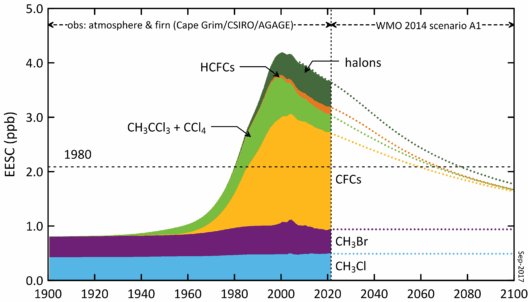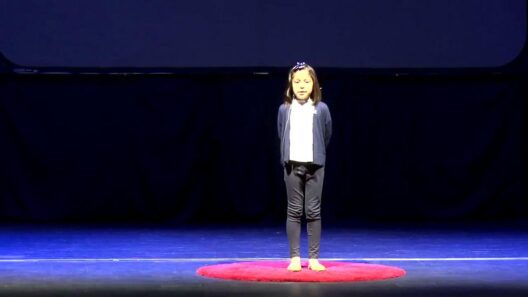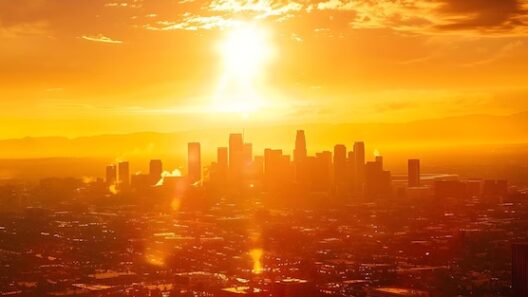Global warming is the most pressing existential threat of our time, yet a perplexing dilemma persists: is public awareness of global warming too little too late? This question looms large in discussions about climate change, urging a deeper examination of the interplay between societal cognizance and actionable change. As the clock ticks down to potentially irreversible environmental damages, one must ponder whether current awareness levels can catalyze meaningful action or if they are merely a fleeting acknowledgment in an era of accelerating crises.
To elucidate this quandary, we must first dissect the core elements influencing public awareness. For decades, scientific consensus has unequivocally identified human-induced climate change as the primary catalyst for escalating global temperatures, melting ice caps, and rising sea levels. Yet, public discourse has fluctuated, alternating between acknowledgment of the crisis and a troubling apathy. Surveys indicate that while an increasing number of people are aware of climate issues, a substantial gap remains between awareness and urgency. Is it possible that this awareness is marred by a sense of complacency?
Consider the role of media in shaping perceptions. The abundance of information available today should, in theory, bridge the gap between knowledge and action. Yet, sensationalism often dominates headlines, overshadowing substantive discourse. Reports of extreme weather events flood our screens, but the question that remains is whether these are translated into proactive measures or simply served as a momentary shock to the conscience. Can such episodic alarmism foster a dedicated mobilization toward sustainable practices, or does it lead to desensitization? This latter phenomenon may stifle the urgency of the climate narrative.
Another noteworthy factor is the paradox of environmental education. Within academic settings, climate science is increasingly part of curricula, yet many students emerge into adulthood bearing knowledge without the requisite skills to implement real-world solutions. Initiatives addressing environmental stewardship must evolve beyond rote learning; they need to encourage critical thinking, problem-solving, and innovative practices. Despite advances in environmental education, do students perceive climate change as a distant threat, or do they grasp the immediacy of the crisis?
Moreover, societal challenges such as economic instability and social inequality complicate the narrative further. For many, the daily struggle for survival eclipses long-term environmental concerns. Individuals facing food insecurity or housing instability may view global warming as a far-off concern, detached from their immediate needs. This stark reality raises a pivotal challenge: how can advocates for climate action effectively engage communities grappling with urgent socio-economic issues? Creating equitable platforms for environmental advocacy that resonate with marginalized populations is essential for fostering comprehensive awareness.
As we grapple with the multifaceted components of public consciousness surrounding global warming, it’s crucial to question whether the prevailing awareness translates into tangible community action. Are there local grassroots movements that encourage citizens to adopt sustainable practices? Initiatives that promote neighborhood clean-ups, urban gardening, or renewable energy investments present a plethora of opportunities for collective engagement. These movements underscore a salient point: people often connect with climate action when it is manifestly local and personally relevant. This begs the question, can localized efforts amplify individual awareness into a broader societal movement?
Another avenue worth exploring is the role of technology in transforming public perception. Innovations in communication have birthed unprecedented ways to disseminate information about climate change. Social media platforms can serve as powerful tools for solidarity, facilitating movements such as Fridays for Future or Extinction Rebellion. However, one must ask if the digital age’s proclivity for distraction undermines sustained engagement with global warming. Amid the constant barrage of trending memes and viral challenges, can profound messages about climate responsibilities truly penetrate the public psyche?
Conversely, the increasing visibility of climate activists and scientists striving for change is encouraging. As public figures advocate for rigorous policies and systemic reforms, more individuals are inspired to act. Events like the United Nations Climate Change Conferences galvanize nations to unite in the face of a common threat. Yet, does this orchestrated collaboration signify a seismic shift in public awareness, or is it merely procedural ritual without substantial results? Addressing this question necessitates introspection regarding accountability and follow-through.
While despair over climate change can be paralyzing, it is imperative to champion the potential for change that exists within awareness. Despite the daunting challenges presented by global warming, there are glimmers of hope. Collaborative efforts in science, policy, community engagement, and education can forge pathways toward mitigation and adaptation. Are we prepared to innovate our approaches and galvanize collective action in the face of adversity? The answer may determine not only our future climate but also our shared human experience.
Ultimately, public awareness of global warming raises critical questions about engagement and responsibility. Is it truly too late for society to mobilize in a concerted effort to combat climate change, or can we harness the awareness we currently possess to instigate meaningful change? The response to this conundrum rests on our ability to integrate knowledge into action, fostering a collective commitment to sustainability. The stakes are remarkably high, and the challenge is formidable; however, with deliberate effort and persistent advocacy, a brighter and more sustainable future is not only conceivable—it is imperative.







